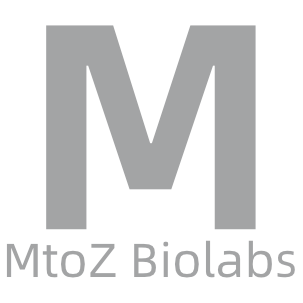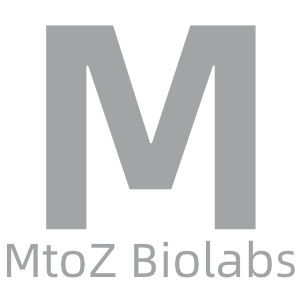Antibody-Drug Conjugate (ADC) Sequencing Service
Antibody-drug conjugates (ADCs) are composed of three parts: (1) Antibody (Ab): Ab is responsible for targeting specific antigen-expressing cells, usually cancer cells; (2) Cytotoxic drug: Cytotoxic drug is a small molecule drug that is conjugated to the Ab and can be delivered specifically into the cell and released to kill the target cell; (3) Linker: A linker connects the Ab and the drug, ensuring stability during transportation and efficient release of the ADCs at the target site.
Fu, Z. et al. Signal Transduct Target Ther. 2022.
Figure1. The Structure and Characteristic of an ADC Drug
Great progress has been made in the research of ADCs since 1980s. Now ADCs is widely applied in tumor treatment, autoimmune diseases and infectious diseases, etc. In recent years, multiple ADCs have been approved by the FDA for clinical treatment, such as Adcetris and Kadcyla, significantly improving patient outcomes. But there were emerging concerns about the targeting function and toxicity of ADCs. ADCs sequencing can improve the speciality and reduce toxicity of ADCs. It is vital for the application and advancement of ADCs.
MtoZ Biolabs has developed an efficient, fast, and accurate ADCs sequencing platform based on high-throughput mass spectrometry (MS) technology. Our team of experienced scientists and technical experts has deep expertise in ADCs and its sequencing research. We are committed to providing high-quality, efficient services to advance ADCs sequencing research and ADCs optimization. Free project evaluation, welcome to learn more details! Our technical specialists are available to provide a free business assessment.
Analysis Workflow
The primary sequencing methods for ADCs include: (1) MS-based sequencing: Analyzing the Ab part and drug conjugation sites using high-resolution MS; (2) Amino acid analysis: Determining the amino acid composition of the Ab; (3) Nucleic acid sequencing: Determining the gene sequence encoding the Ab using PCR and gene sequencing technologies.
1. Sample Preparation
Extracting and purifying ADC samples to ensure they are free from contaminants and of high quality.
2. PCR Amplification
(1) Extracting total RNA from antibody-producing cells and reversing transcribe it into complementary DNA (cDNA).
(2) Designing and synthesizing specific primers to amplify the gene fragments of the light and heavy chains of the Ab.
3. Mass Spectrometry Analysis
(1) Purifying the PCR amplification products.
(2) Enzymatically digesting the purified products into peptides using trypsin.
(3) Performing ionization and mass analysis of the peptides using HRMS and MS/MS technology.
4. Data Interpretation
Using specialized software to reconstruct the full-length amino acid sequences of the Ab and identifying the drug conjugation sites.
5. Validation and Reporting
(1) Validating the sequencing results through further experiments.
(2) Generating a detailed sequencing report, including the complete amino acid sequences of the Ab, drug conjugation sites, and drug-to-antibody ratio (DAR).
Service Advantages
1. High Accuracy
We can ensure precise sequencing of the Ab and drug conjugation sites using HRMS and MS/MS technology, providing detailed structural information.
2. High Throughput
Our platform is able to analyze multiple samples simultaneously to increase research efficiency and suitable for large-scale studies and quality control in production.
3. Comprehensive Coverage
Our service provide comprehensive analysis of Ab sequences, drug conjugation sites, DAR, and drug components, supporting the full characterization of ADCs.
4. Customized Service
We tailor sequencing plans according to customer needs, providing full technical support to ensure results meet specific research and application requirements.
Application
1. Precision Drug Development
(1) Structural Optimization: Detailed structural information obtained through sequencing is crucial for optimizing the design of ADCs, thereby enhancing their targeting specificity and therapeutic efficacy.
(2) DAR Optimization: Accurate determination of the ratio DAR through sequencing optimizes therapeutic outcomes while minimizing adverse effects.
2. Clinical Research and Efficacy Evaluation
(1) Therapeutic Efficacy Evaluation: Sequencing allows for the monitoring of ADC structural changes and drug release during treatment, facilitating a comprehensive evaluation of clinical efficacy.
(2) Resistance Mechanism Research: Sequencing data are instrumental in analyzing tumor resistance mechanisms to ADCs, enabling the development of more effective therapeutic strategies.
3. Quality Control and Production Consistency
(1) Batch Consistency Verification: Sequencing ensures the molecular structural consistency across different ADC batches, thereby guaranteeing high product quality.
(2) Purity and Stability Testing: Sequencing is employed to test the purity and stability of ADC samples, ensuring their effectiveness during transportation and storage.
Deliverables
1. Experimental Procedures
2. Relevant Mass Spectrometry Parameters
3. Detailed Information on Antibody-Drug Conjugate (ADC) Sequencing
4. Mass Spectrometry Images
5. Raw Data
FAQ
Q1: In clinical research, how can sequencing monitor the therapeutic efficacy and safety of ADCs?
In clinical research, sequencing technology is employed to track structural modifications and drug release dynamics of ADCs throughout the treatment process. This monitoring aids in evaluating therapeutic efficacy and safety while also providing insights into the emergence of drug resistance. Sequencing data can inform the optimization of treatment regimens by identifying specific molecular changes that correlate with therapeutic outcomes.
Q2: How to evaluate the stability of linkers?
Linkers must be designed to maintain stability during systemic circulation but allow for efficient drug release at the target site. Mass spectrometry (MS) can assess the stability and degradation profiles of various linkers under physiological conditions, enabling the selection of the most effective linker for drug delivery. MS provides detailed molecular information that is critical for optimizing linker performance in ADCs.
How to order?







